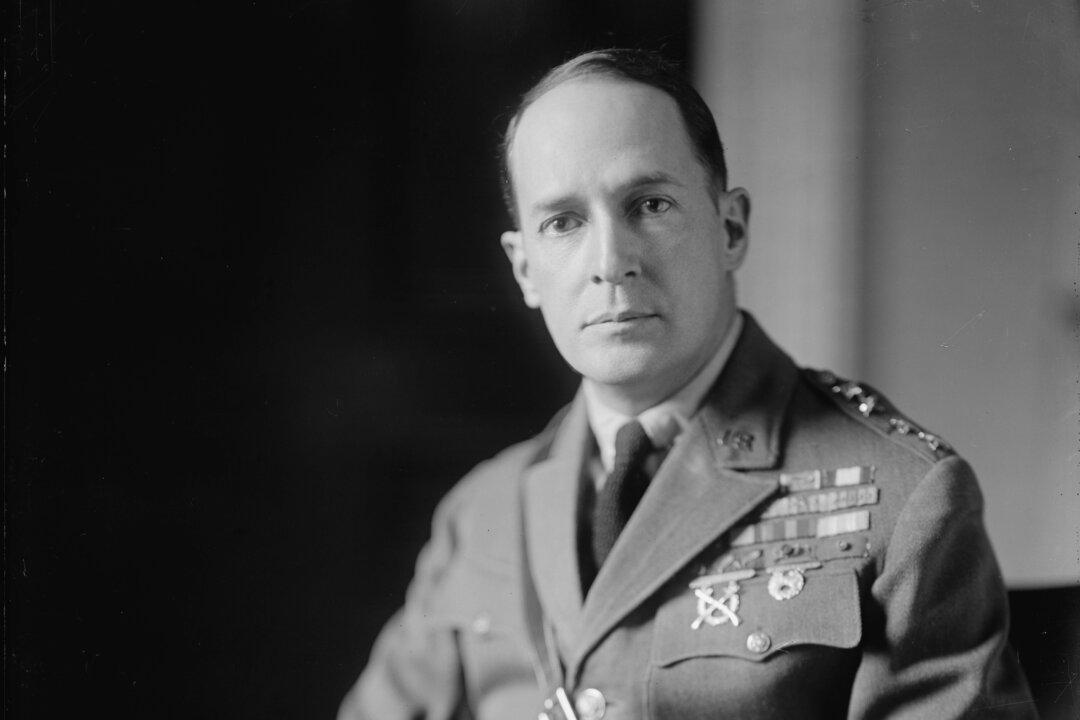Good mothers encourage their children, guide them when they face trials, and when necessary, gently push them to strive for excellence. Even after the kids enter college or join the workforce, Mom is just a phone call away, ready to offer advice or a shoulder to cry on. “Life doesn’t come with a manual,” the old saying goes. “It comes with a mother.”
Which brings us to Mary Pinkney MacArthur.
Mary Pinkney (1852–1935), “Pinky” to her friends, was a Southerner, a daughter of North Carolina and Virginia, who was proud of her older brothers for having fought for the Confederacy. Yet in 1875, Pinky demonstrated the indomitable willpower that would mark her life by marrying Arthur MacArthur, a Union war hero instrumental in the defeat of Confederate forces at the Battle of Missionary Ridge. Though her family opposed her wedding to a Yankee—two of her brothers refused to attend the ceremony—Pinky remained a devoted and loving wife until Arthur’s death in 1912.
Instilling Patriotism
She showed that same devotion to her three sons, Arthur III, Malcom, and Douglas. After Malcom’s death at age 4 from measles—Arthur later attended the Naval Academy and died from appendicitis in 1923—Pinky centered her care and affection on Douglas. Throughout his childhood, she frequently reminded him at bedtime of his destiny: “You must grow up to be a great man—like your father and Robert E. Lee.”
During that same time, as the family traveled from one military post to another, Pinky inculcated in both her boys heroic ideals taken from the past. Of their early education, biographer William Manchester wrote, “Her sons never lacked books about martial heroes. In her lap they learned the virtue of physical courage and the disgrace of cowardice.”
Many years later, Douglas reminisced on those days of learning at his mother’s knee:






